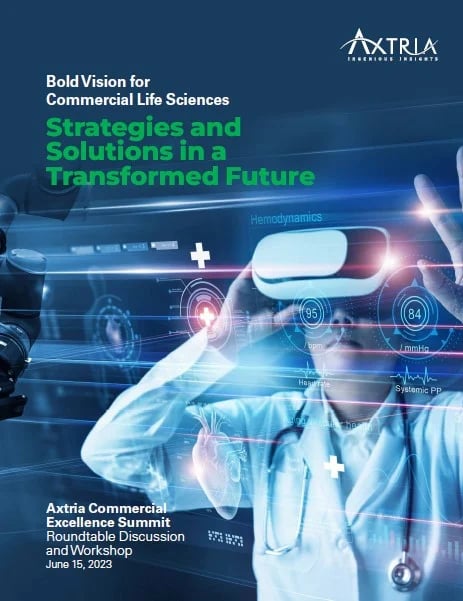Axtria Ignite 2025: Inspiring Innovations, Building Bonds, And Advancing Life Sciences With AI
Axtria Ignite 2025, held June 4-5 at the Princeton Marriott at Forrestal, was a triumphant two-day summit that helped redefine the life sciences industry’s approach to win in a rapidly changing environment. Ignite 2025 gathered more than 400 senior executives from over 100 leading life sciences organizations to share expertise and learn from each other. This year’s theme focused on “Leadership in an Agentic Era.”
And from the get-go, our panels offered valuable takeaways. Speakers candidly pointed out what’s working with AI and Agentic AI, but just as importantly, what’s not working yet. That knowledge is critical for attendees as they move forward in their own company’s journey to embed AI and Agents into business processes. The insights shared matter, but who they’re coming from is just as important. This year, we welcomed more than 50 senior industry leaders as speakers on the Ignite stage, including Greg Meyers, EVP and Chief Digital & Technology Officer, Bristol Myers Squibb, who sat down for a fireside chat with Jassi Chadha, President and CEO, Axtria.
Ignite 2025 also provided several hands-on workshops highlighting how Axtria’s cloud software, the best-in-class for pharma, can spark even further transformations with Agentic AI. And, most importantly, Ignite sparked lasting friendships through one of the event’s most beloved features: casual networking receptions where attendees rekindled bonds and rubbed elbows with industry changemakers.
Main Stage: AI’s Role in Patient-Centric Commercialization
From Chief Technical Officers to Senior Vice Presidents, our main stage panels and fireside chats highlighted AI's transformative potential in life sciences.
- Our speakers detailed how AI and Tech are driving personalized medicine, streamlining commercialization, and enhancing patient outcomes through rapid data analysis, early diagnoses, and optimized treatments.
- Panelists from top pharma companies like BMS, Novartis, Bayer, Gilead, and GSK showcased AI applications like diagnostic tools, forecasting, and hyper-personalized messaging, while emphasizing its role as a human-augmenting "bionic extension."
- However, significant hurdles remain, including organizational resistance, siloed data, outdated infrastructure, and regulatory constraints, requiring cultural transformation, trust-building, and agile approaches to overcome.
- The panelists agreed: success hinges on responsible AI adoption, outcome-based partnerships, and fostering an AI-native mindset to unlock productivity and improve global access to care.
Beyond the Main Stage, Axtria Ignite 2025 offered a full slate of valuable sessions across several tracks, including AI-powered analytics, modern data management, and field force effectiveness, along with an up-close look at our industry-leading software solutions.

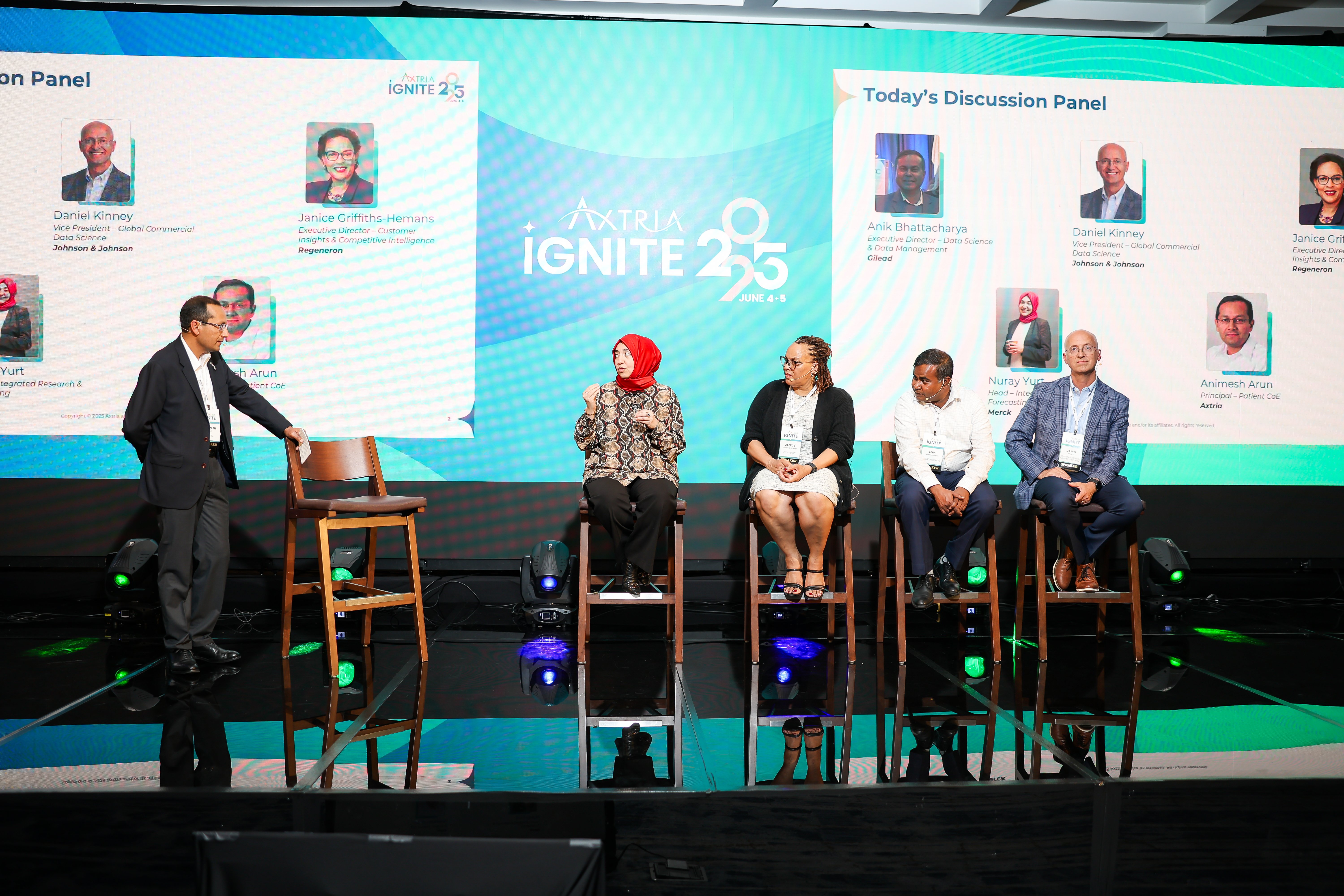
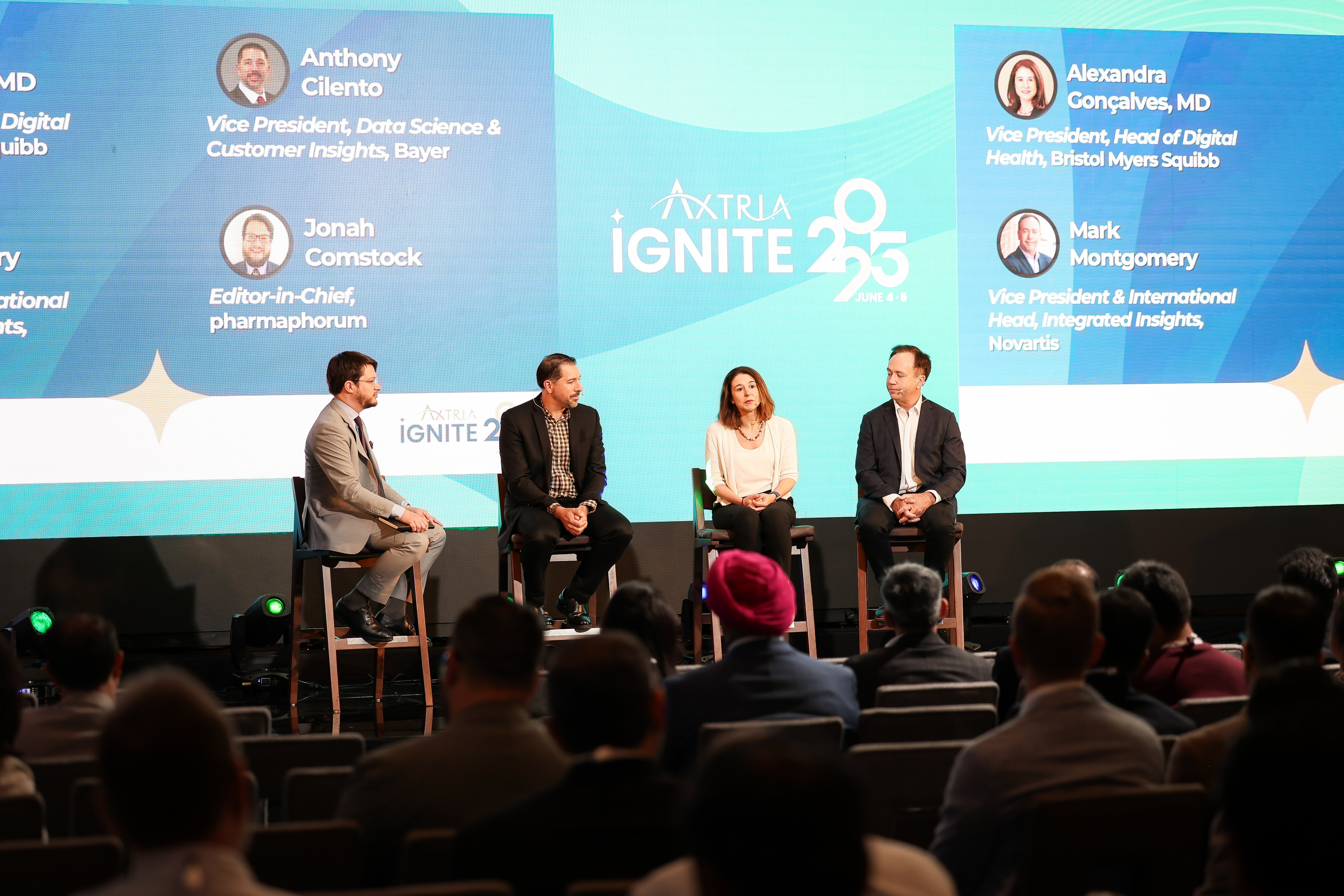
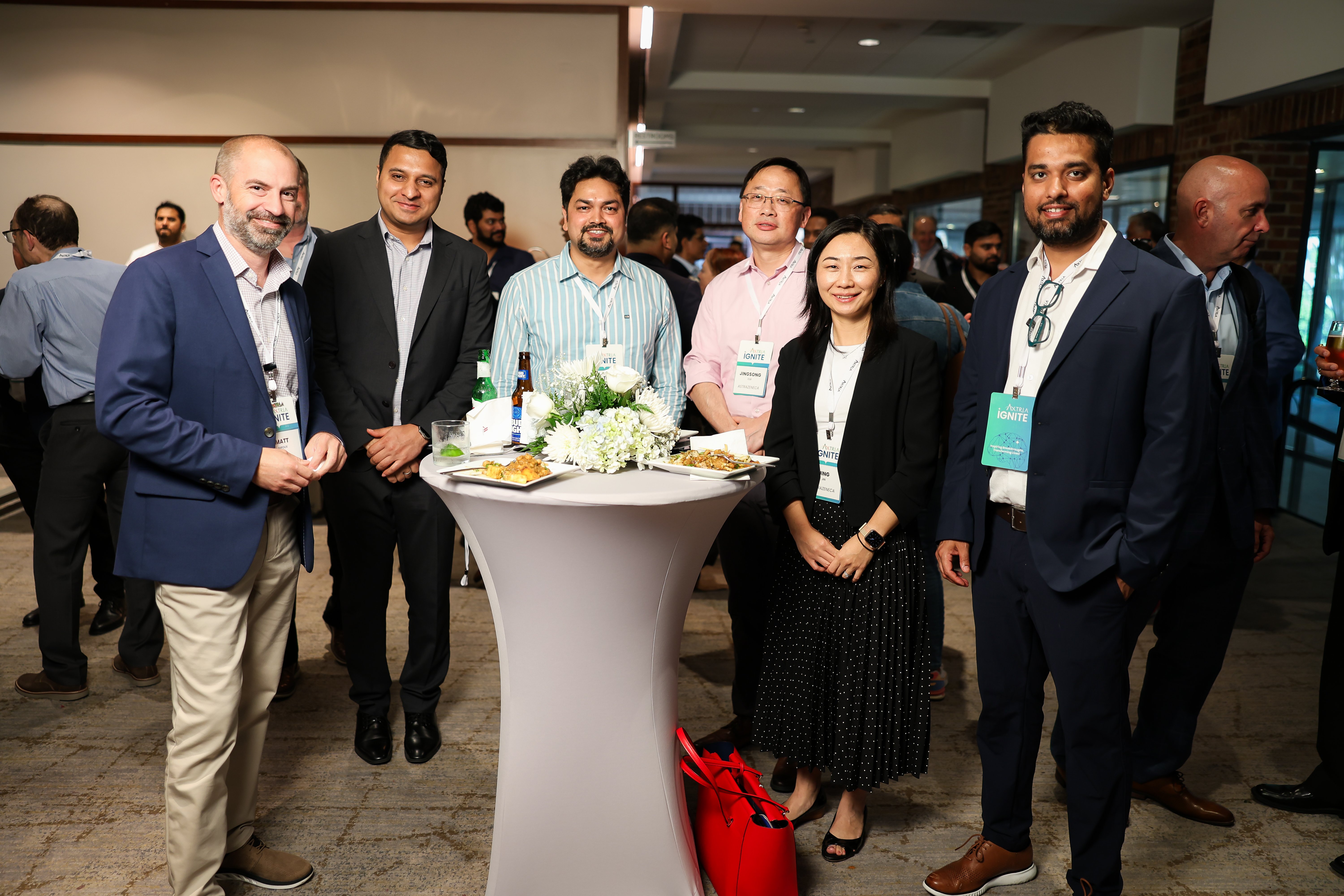
AI-Powered Analytics: Strengths and Struggles
-
Successes: Panelists noted how Agentic AI is driving significant ROI, going beyond efficiency plays. The human-agent collaboration can revolutionize analytics with several examples across next-best-action recommendations, dynamic targeting, and 360-degree patient engagement. This involves integrating diverse data to optimize physician interactions, reduce reimbursement delays, and enhance campaign strategies with personalized content creation and operational efficiency.
-
Novel Insights and Personalization: AI surfaces novel insights by predicting real-time market segmentation and navigating complex commercial and scientific data, improving field enablement and campaign strategies while fostering patient-centric outcomes through holistic data integration.
-
Barriers Remaining: Cultural resistance, lack of leadership buy-in, siloed Centers of Excellence, and challenges like managing hallucinations and ensuring compliance hinder adoption, requiring cross-functional teams, robust data architectures, human oversight, and a culture of experimentation to embed AI effectively.
Modern Data Management: Gains and Gaps
-
Transformative Data Platforms: Panelists in this track were eager to talk about how agent-ready solutions with semantic layers, like one firm’s generative business intelligence (GenBI) copilot, enable voice and text-driven insights for sales reps, boosting productivity through real-time personalization and actionable pre-call planning recommendations.
-
Strategic Advancements and Metrics: Organizations are adopting product-centric data strategies with reusable assets and federated models to break down silos, leveraging synthetic and unstructured data for scalable AI solutions, while tracking data quality, human override rates, and business outcomes like sales lift to measure success.
- Persistent Challenges: Lack of industry-standard interoperability, poor data quality, and cultural skepticism toward AI-driven ‘data to insights’ journey pose significant hurdles, necessitating standardized data ingestion, early compliance integration, and robust governance to build trust and ensure regulatory alignment.
Field Force Effectiveness: Bright Spots and Blind Spots
-
Agentic AI and Omnichannel Successes: In this track, our speakers shared how Agentic AI is transforming commercial operations with proactive systems for pre-call planning, territory alignment, and rare disease patient identification, slashing process times from weeks to minutes and boosting engagement through advanced orchestration engines handling 80% of digital interactions.
-
Measurable Impact and Metrics: Significant productivity gains, brand revenue lift, and improved patient outcomes were achieved, with key metrics like engagement scores, cross-channel behavior, and operational efficiency highlighting success, though quantifying complete AI costs remains elusive.
- Ongoing Challenges: Data quality issues, trust, and field team resistance, especially among tenured reps, hinder adoption. Fostering trust and scalability requires unified data taxonomies, custom LLMs with pharma-specific semantic layers, human-in-the-loop guardrails, and early compliance engagement.
Ignite Leadership Awards
For the second year in a row, we honored several life sciences executives with the prestigious Axtria Ignite Leadership Award. This batch of honorees included five trailblazing leaders who have driven true change across the industry. The 2025 winners are:
- Greg Meyers, EVP and Chief Digital & Technology Officer, Bristol Myers Squibb
- Ritesh Mehra, CFO, Ferring Pharmaceuticals U.S.
- Madhavi Ramakrishna, SVP, Enterprise AI & Chief Digital and Technology Officer – Commercial, GSK
- Stephanie Odutola, Executive Director, U.S. Sales Force Operations, AstraZeneca
- Vikram Singh, VP & Global Head, Commercial IT Data Analytics and DSAI, Novartis
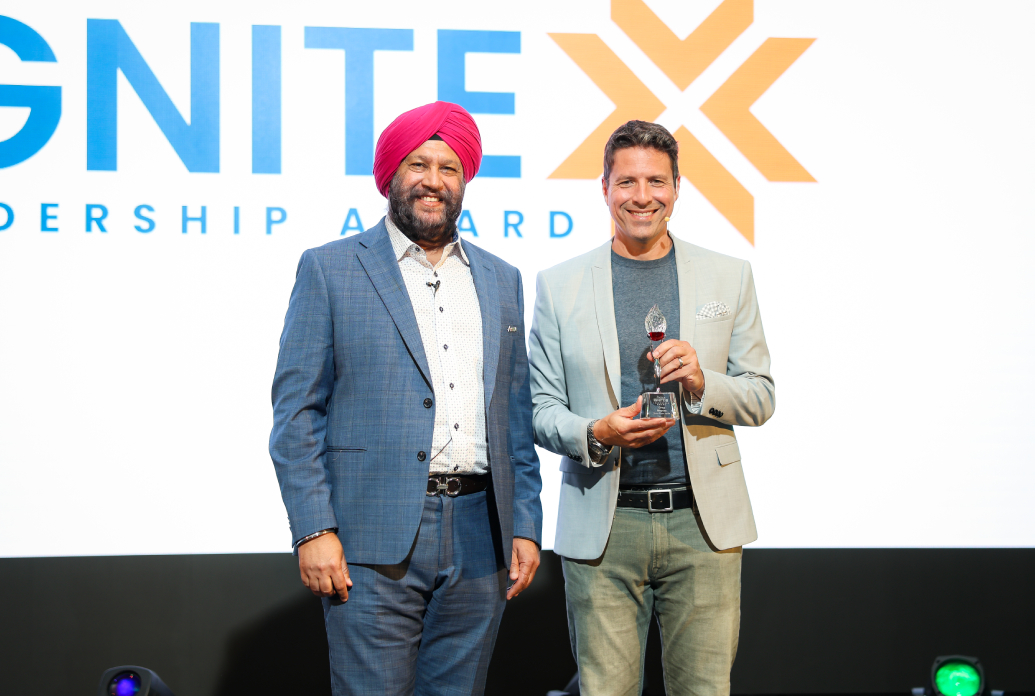
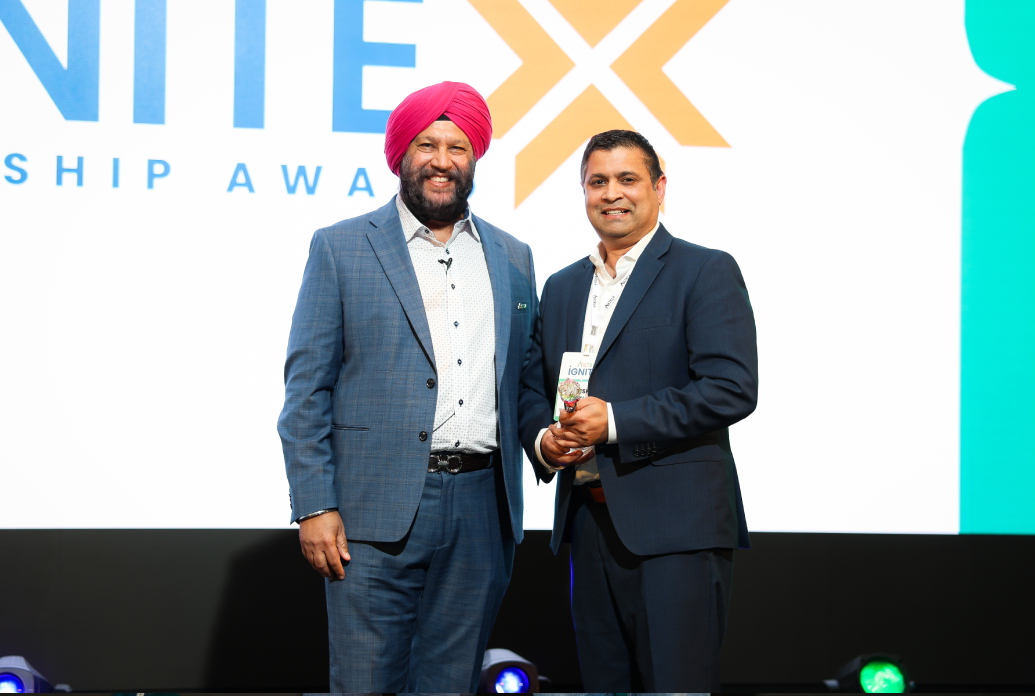
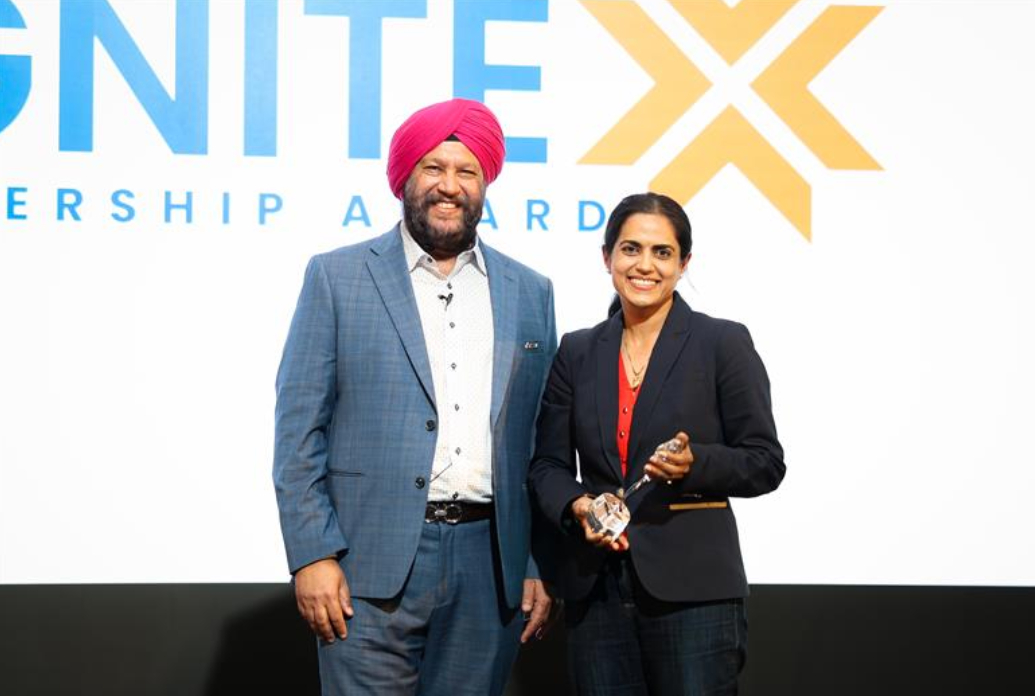
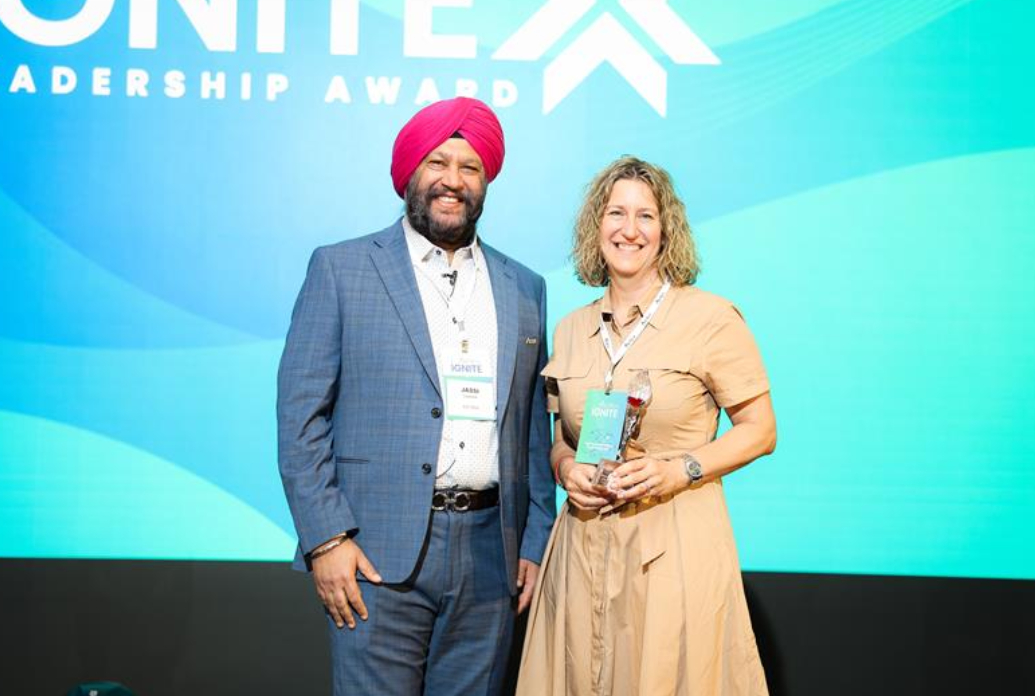
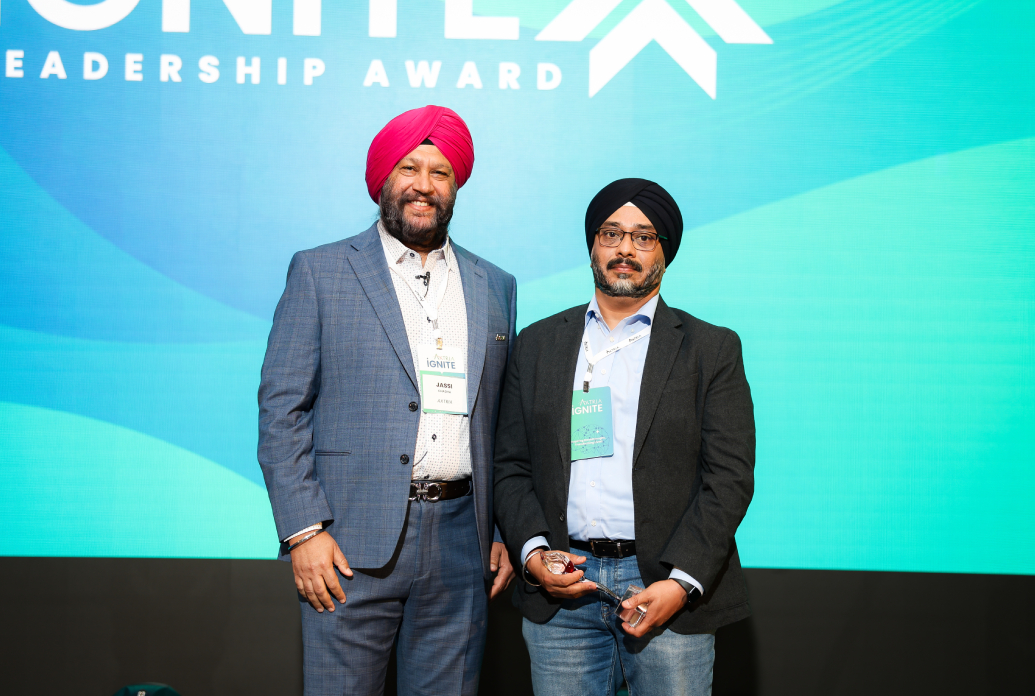
"These leaders exemplify what it means to harness innovation, data, and technology to deliver better outcomes for patients,” said Jaswinder Chadha, President and CEO of Axtria. “Celebrating their achievements at Axtria Ignite 2025 and presenting them with this well-deserved recognition was truly a privilege."
As we close the book on Axtria Ignite 2025, we’re thrilled that so many attendees went out of their way to tell us how much they enjoyed the event. We’re delighted that they came for the knowledge and forged new, lasting partnerships with colleagues across the industry. We’re glad they were able to take key insights with them as they begin or continue their AI journey. And we stand ready, ever vigilant, to guide them on that course. Our speakers and attendees have invigorated our passion for life sciences, and we will build on this momentum as we drive innovation in AI and Agentic, together.
Author details

Gope Biswas
Gope Biswas is a Director, Data Science practice at Axtria. He has over 18 years of work experience in engineering and analytics. Gope brings hands-on expertise in handling MLOps practices, ML engineering, and application integration and development.

Suraj Gupta
Suraj Gupta is a Senior Manager, Marketing at Axtria. He has over 9 years of experience in the analytics and consulting industry, with more than 6 years with life sciences. At Axtria, Suraj has contributed to sales and marketing functions, including business and client development, knowledge management, digital marketing, business intelligence, and content writing. Suraj has an MBA degree in Marketing and a graduate degree in Economics.
